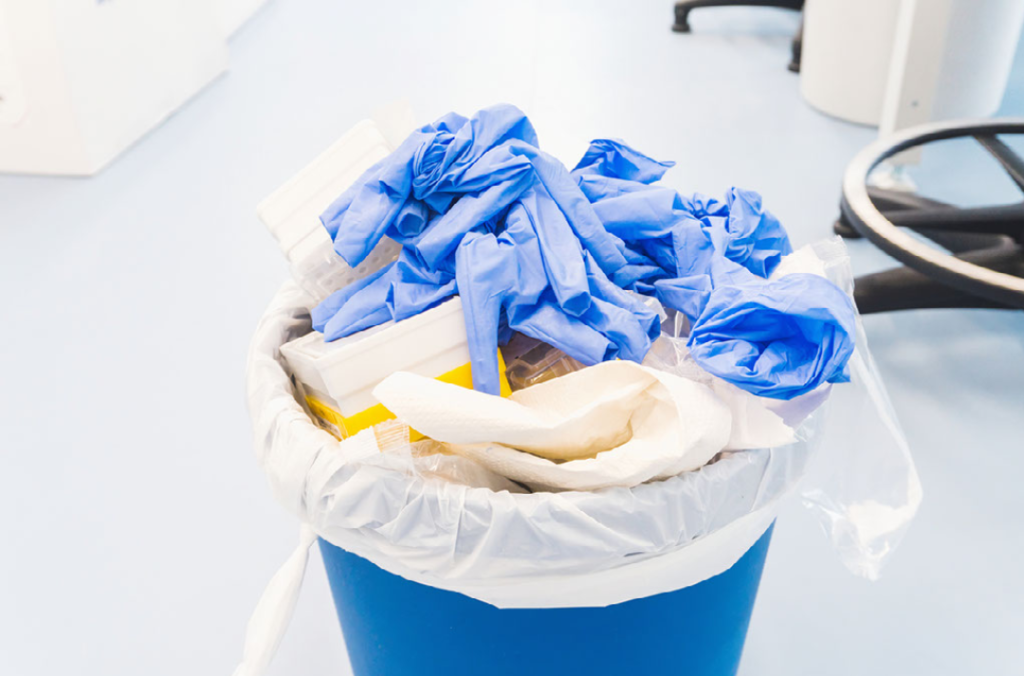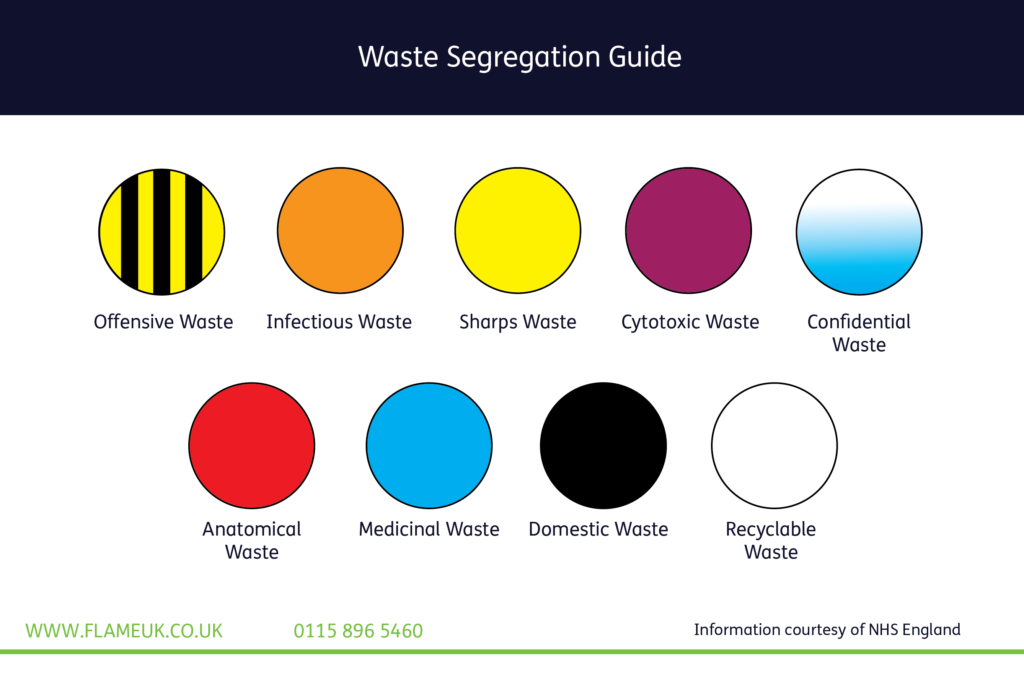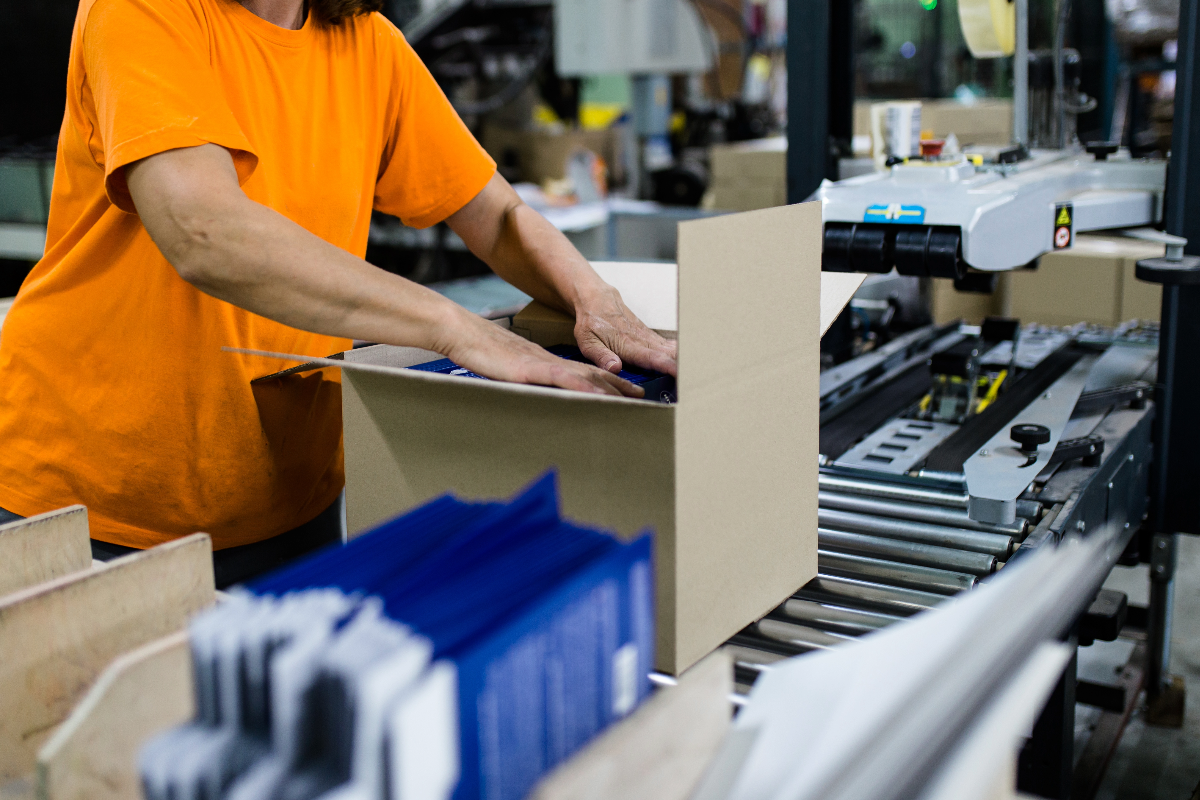BLOG
How to properly dispose of healthcare waste

A healthcare organisation provides health services such as diagnosis, treatment, surgical operations, and support for patients in recovery. These activities lead to the generation of multiple waste streams and it’s important that each waste stream is segregated and disposed of properly. But what types of waste are generated by healthcare organisations and how can it be disposed of in a safe and environmentally friendly way?
What is healthcare waste?
There are 9 types of healthcare waste according to the NHS. This includes offensive, known infectious, infectious/sharps, cytotoxic, anatomical, medicinal, domestic, recyclable and confidential waste. Most of this waste is non-hazardous such as dressings, nappies, and food waste. However, 15% of the waste produced is hazardous. Mishandling such waste can lead to severe harm, particularly with regards to infectious waste, cytotoxic waste, and sharps like scalpels.
How is healthcare waste managed?
Proper management of healthcare waste begins with effective classification and segregation techniques. Currently, healthcare facilities employ colour-coded packaging for different waste types. For example, cytotoxic waste is placed in purple bins, while anatomical waste is designated to red bins. Each waste bin must also be labelled to ensure that it is dealt with in the safest way. For example, sharps waste may be dangerous to those handling it, so a clear label ensures that those that encounter it deal with it in the correct way.
It then needs to be stored correctly and safely. For example, it is best to store hazardous waste in a separate area with a lockable and air-tight lid to reduce the chance of contamination and spillages. It should also be stored for a maximum of 48 hours, and similar safety measures implemented when the waste is being transported to keep the public and environment safe.
Finally, healthcare waste needs to be disposed of in an environmentally friendly and safe manner. A lot of healthcare waste can be recycled such as paper and plastics. For the remaining waste streams, collaboration with a waste management facility is advised, as the company will possess the necessary equipment and expertise to safely dispose of each classification.

Why is waste disposal important in healthcare?
Safe disposal of healthcare waste is important as there can be server consequences if it isn’t treated properly. Firstly, healthcare waste can damage the environment. If it is improperly disposed of, hazardous components can contaminate soil, water, and the air. This may lead to contaminants affecting plants, animals, and ecosystems which could have a long-lasting effect on biodiversity.
It is also important to properly dispose of healthcare waste as it can carry bacteria. It, therefore, poses a risk of spreading infection to those who encounter it, including the public. Sharps waste is particularly dangerous as it can lead to injury as well as infection. Finally, if you don’t safely dispose of healthcare waste there is a risk that you may not be complying with legislation. Non-compliance can lead to legal action, fines, and damage to a company’s reputation.
Contact Us
Fill out the contact us form or start a live chat if you need help disposing of healthcare waste in a cost efficient, compliant and environmentally friendly way!
To see the full NHS standard operating procedure document, click here.




